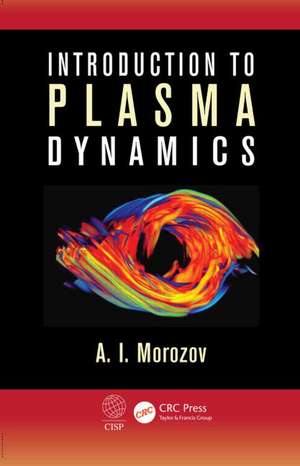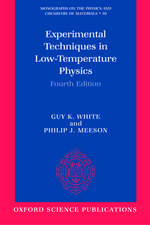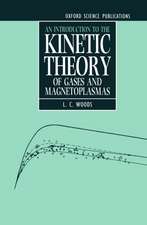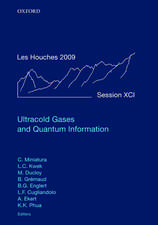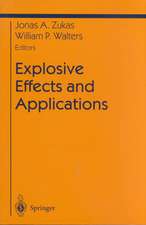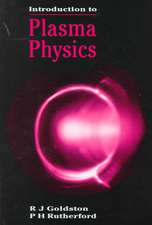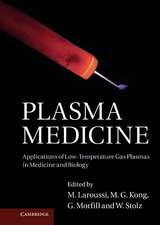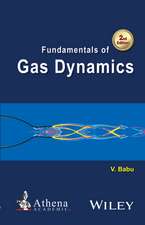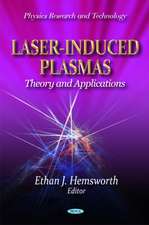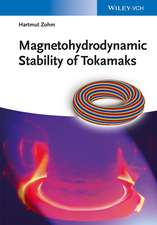Introduction to Plasma Dynamics
Autor A. I. Morozoven Limba Engleză Hardback – 6 dec 2012
The author presents specific examples to demonstrate how to use the models and to familiarize readers with modern plasma technologies. The book describes structures of magnetic fields—one- and zero-dimensional plasma models. It considers single-, two-, and multi-component simulation models, kinetics and ionization processes, radiation transport, and plasma interaction with solid surfaces. The text also examines self-organization and general problems associated with instabilities in plasma systems. In addition, it discusses cosmic plasma dynamic systems, such as Earth’s magnetosphere, spiral nebulas, and plasma associated with the Sun.
This text provides wide-range coverage of issues related to plasma dynamics, with a final chapter addressing advanced plasma technologies, including plasma generators, plasma in the home, space propulsion engines, and controlled thermonuclear fusion. It demonstrates how to approach the analysis of complex plasma systems, taking into account the diversity of plasma environments. Presenting a well-rounded introduction to plasma dynamics, the book takes into consideration the models of plasma phenomena and their relationships to one another as well as their applications.
Preț: 1956.80 lei
Preț vechi: 2386.35 lei
-18% Nou
Puncte Express: 2935
Preț estimativ în valută:
374.45€ • 400.40$ • 312.20£
374.45€ • 400.40$ • 312.20£
Carte tipărită la comandă
Livrare economică 18 aprilie-02 mai
Preluare comenzi: 021 569.72.76
Specificații
ISBN-13: 9781439881323
ISBN-10: 1439881324
Pagini: 834
Ilustrații: 397 b/w images and 28 tables
Dimensiuni: 156 x 234 x 48 mm
Greutate: 1.34 kg
Ediția:New.
Editura: CRC Press
Colecția CRC Press
ISBN-10: 1439881324
Pagini: 834
Ilustrații: 397 b/w images and 28 tables
Dimensiuni: 156 x 234 x 48 mm
Greutate: 1.34 kg
Ediția:New.
Editura: CRC Press
Colecția CRC Press
Public țintă
Researchers, both academic and professional, interested in plasma chemistry and physics and plasma technology, and undergraduate and graduate students in the same fields.Cuprins
Index. Fields, particles, blocks (point models). One-fluid plasma models. Two-fluid hydrodynamic plasma models. Collisionless kinetic models of processes in plasma Vlasov-Maxwell equations. Kinetics of two-component plasma in classic collisions. Plasma processes with transformation of particles and radiation. Interaction of plasma with the surface of solids. Instabilities and self-organisation of plasma dynamic systems. Processes in cosmos and plasma dynamics. Examples of modern plasma technologies. Appendices. Literature. Introduction.
Notă biografică
Professor A. I. Morozov was one of the founders of plasma dynamics. His main scientific interests included plasma accelerators, plasma optics, magnetic plasma sustainment, and philosophy of science. He played a major role in the development and construction of space stationary plasma engines and worked at the Institute of Atomic Energy and the Kurchatov Institute in Moscow.
Descriere
Beginning with an introduction to the characteristics and types of plasmas, this text covers the basic models of classical diffuse plasmas used to describe such phenomena as linear and shock waves, stationary flows, elements of plasma chemistry, and principles of plasma lasers. It describes a number of cosmic objects, including planetary vortices and magnetospheres. The book also discusses applied plasma dynamic systems, with special attention given to the history of plasma studies up to the present day. In addition, it examines self-organization and general problems associated with instabilities in plasma systems.
